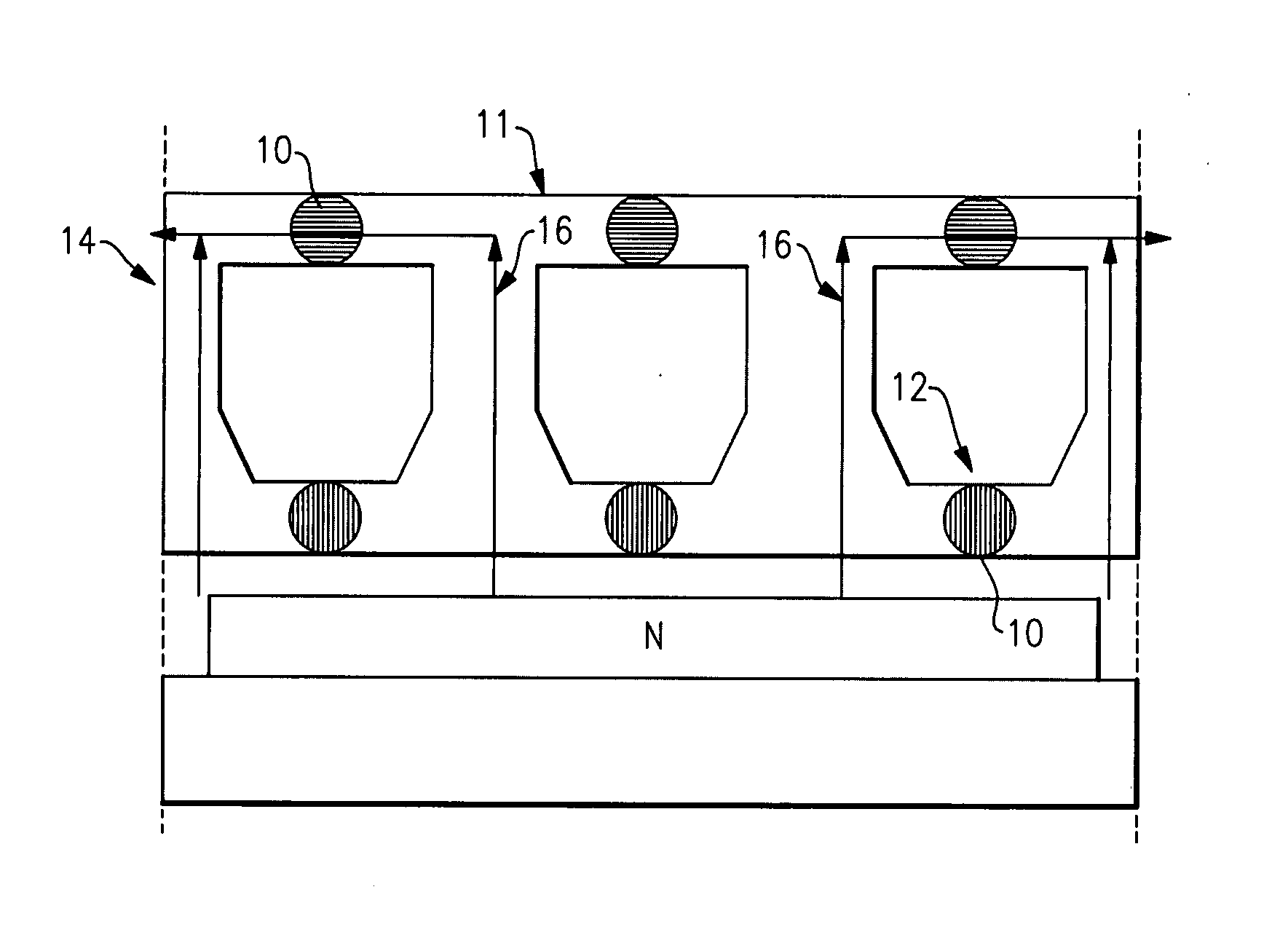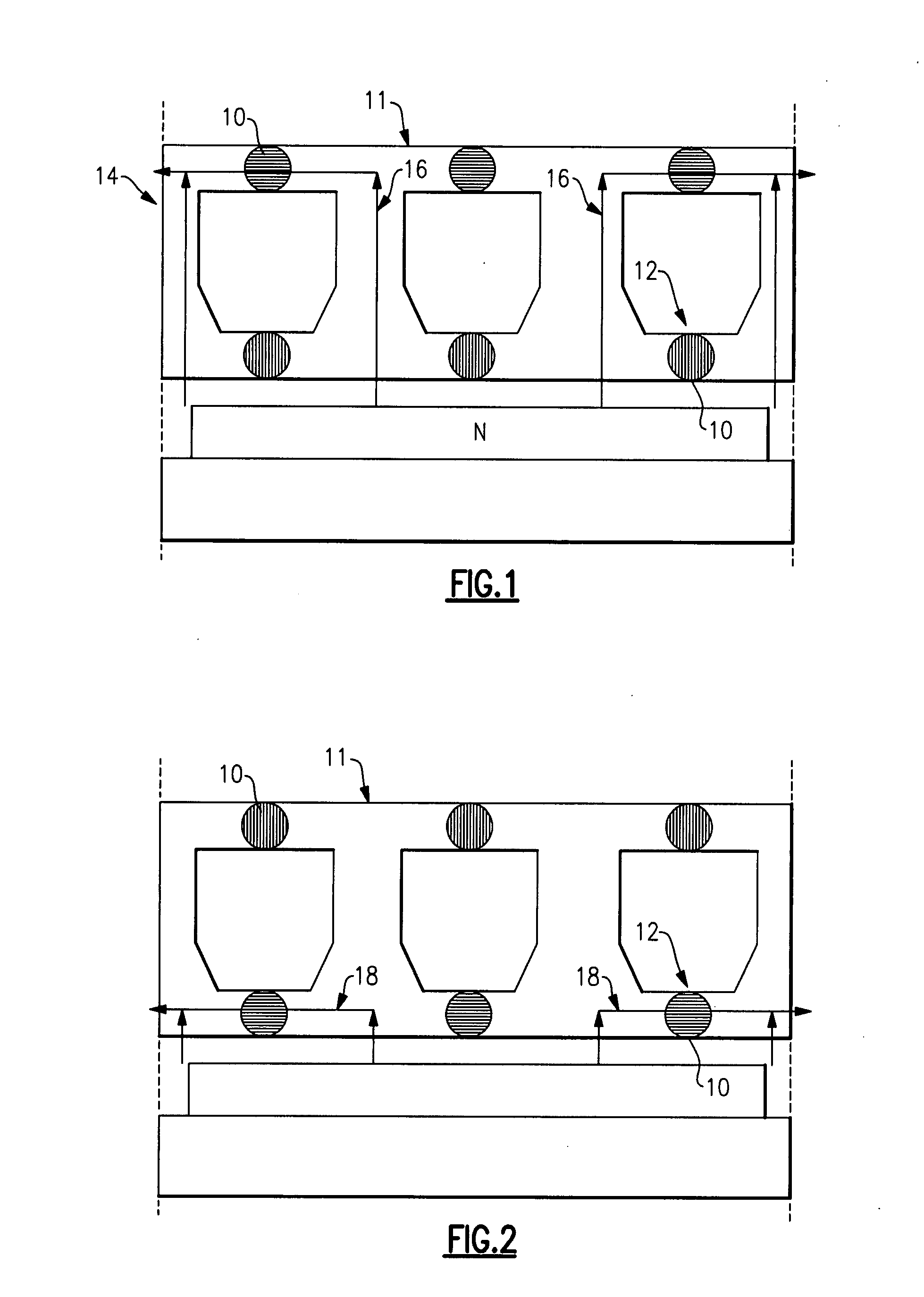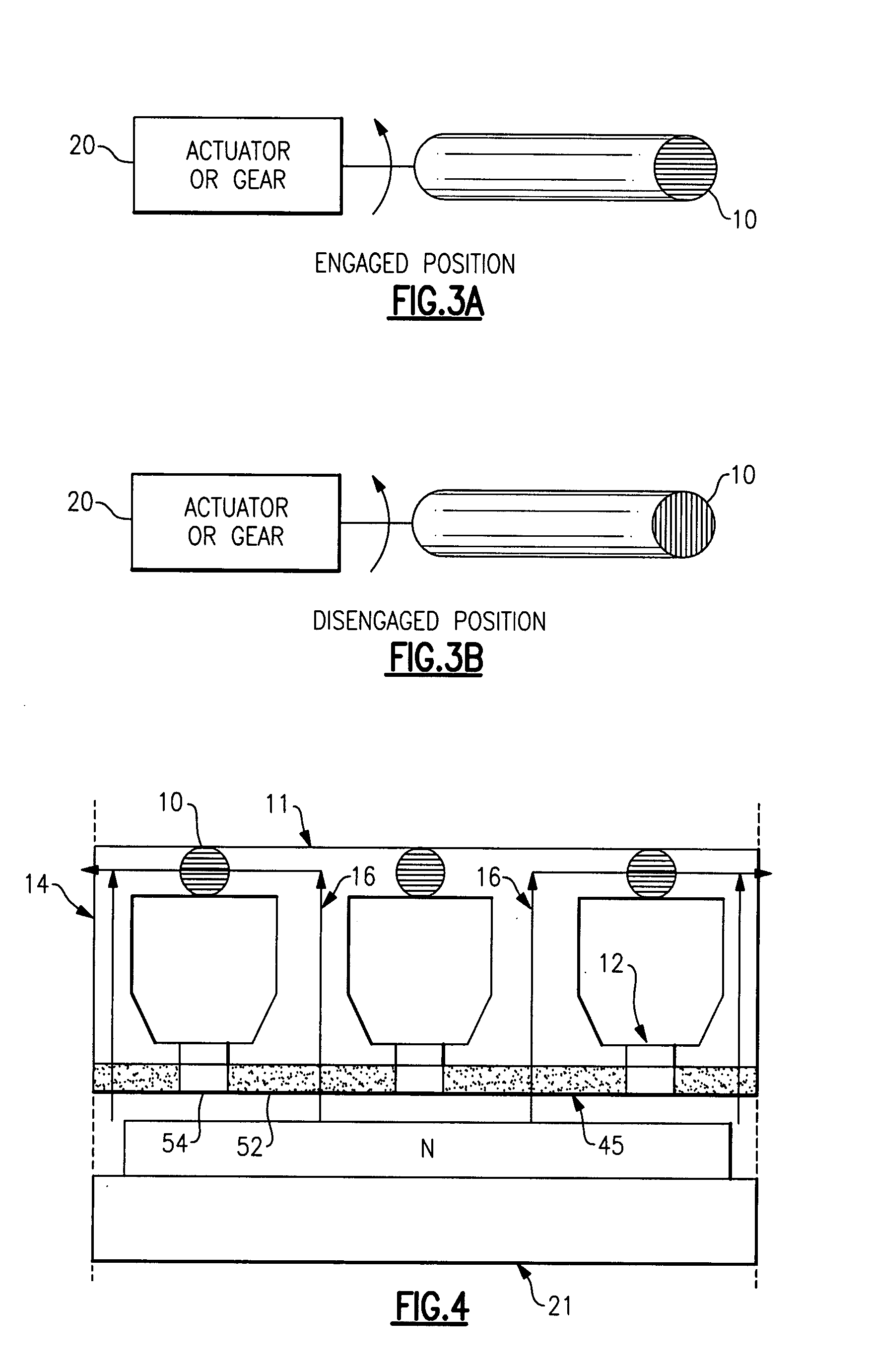Fault-tolerant permanent magnet machine with reconfigurable stator core slot opening and back iron flux paths
a permanent magnet machine, reconfigurable technology, applied in the direction of motor/generator/converter stopper, dynamo-electric converter control, shape/form/construction of magnetic circuits, etc., can solve problems such as reducing the ability to operate the engine properly, affecting the reliability of pm generators, and affecting the fault tolerance of pm generators. existing techniques to achieve the effect of reducing fault curren
- Summary
- Abstract
- Description
- Claims
- Application Information
AI Technical Summary
Benefits of technology
Problems solved by technology
Method used
Image
Examples
Embodiment Construction
[0022]Conventional PM synchronous electric machines employ permanent magnets as the magnetic poles of a rotor, around which a stator is disposed. The stator has a plurality of teeth that face the rotor. Alternatively, the machine may be designed so that the rotor surrounds the stator. For high-speed operation, a retaining sleeve is usually wrapped around the magnets as needed to keep the magnets in place. The retaining sleeve may be shrink fit upon the magnets to ensure a non-slip fit. Usually the retaining sleeve is made of one whole metallic piece for structural integrity. When the coils formed on the stator are energized, a magnetic flux is induced by the current through the coils, creating electromagnetic forces between the stator and the rotor. These electromagnetic forces contain tangential and / or circumferential forces that cause the rotor to rotate.
[0023]In order to achieve inherent fault-tolerance in these PM machines, there has to be complete electromagnetic, thermal, and ...
PUM
 Login to View More
Login to View More Abstract
Description
Claims
Application Information
 Login to View More
Login to View More - R&D
- Intellectual Property
- Life Sciences
- Materials
- Tech Scout
- Unparalleled Data Quality
- Higher Quality Content
- 60% Fewer Hallucinations
Browse by: Latest US Patents, China's latest patents, Technical Efficacy Thesaurus, Application Domain, Technology Topic, Popular Technical Reports.
© 2025 PatSnap. All rights reserved.Legal|Privacy policy|Modern Slavery Act Transparency Statement|Sitemap|About US| Contact US: help@patsnap.com



